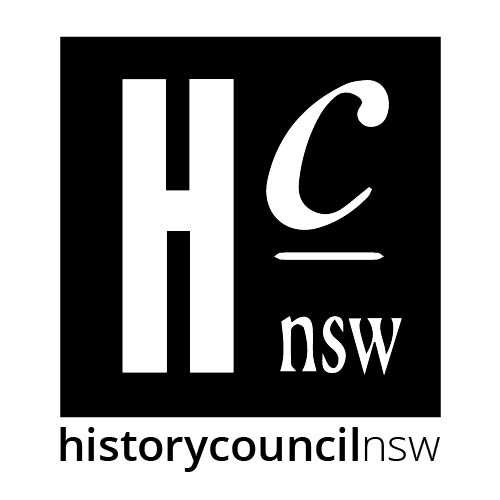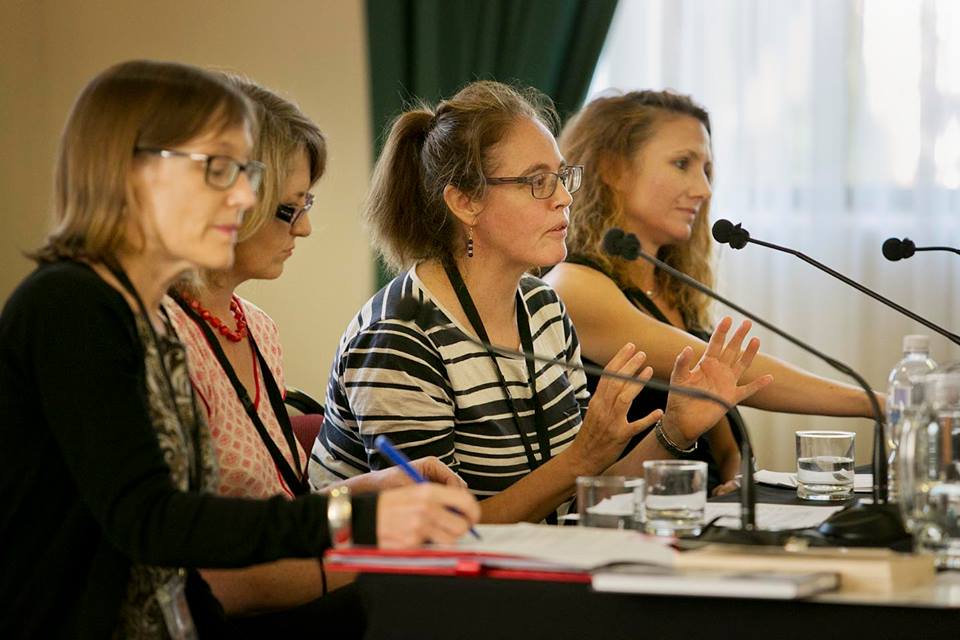Photo: Bringing Family History to Life panel at the Newcastle Writers Festival, left to right: Nancy Cushing, Catharine Coleborne, Melanie Nolan, Tanya Evans. Photo by Chris Patterson
The History Council of NSW presented a panel at the Newcastle Writers Festival on 1 April 2016. Hosted by Nancy Cushing, University of Newcastle, historians Tanya Evans, Catharine Coleborne and Melanie Nolan spoke about the family history boom and how it has impacted their research and writing. The panel focused on the crucial role of emotion in both researching and writing family history.
Emotions have had an extensive impact on Tanya’s work on families, poverty and sexuality, Catharine’s research into mental illness and institutional asylums, and Melanie’s work with the Australian Dictionary of Biography (ADB). Tanya noted that it is often emotions that spark the initial interest in researching one’s family history, especially when combined with the sense of “guilty pleasure” that often comes with unearthing family secrets. Yet this process can also be confronting: Catharine gave several examples of the confronting, emotional experiences that accompanied her research into mental illness within the family.
While the entire panel noted that these emotive aspects of family history can sometimes diminishe the practice in the eyes of academic historians, it is also what gives the discipline its power. Tanya argued that history should strive to evoke an emotional response from its audience, in order to affect transformative historical engagement. From this point of view, popular family history formats like SBS’s miniseries Who Do You Think You Are? are more than just a showcase of crying celebrities, and instead are examples of a complex engagement with both personal stories and Australia’s broader social history. Nancy agreed, and argued that the panel itself offered proof that academia and family history can be successfully combined.
All of the panelists argued for this emotive, personal engagement as a factor in creating a more complete historical record. Melanie outlined the various workings of the ADB and its commitment to documenting stories from all areas of Australian history, and not just from the lives and experiences of the elite or literate. Melanie explained how ADB authors collect accounts from family members that can add crucial evidence to the official, archival story. She stressed the need for ‘compassionate truth’ in history: combining emotions and empirical evidence to create an informed yet sensitive account of individual and collective lives.
With an attentive audience of writers, academics and family historians alike, the panel were able to leave us with a few tips for further research. Catharine advised researchers to ‘Let go of the need for completeness’: embrace the gaps and silences in the archives, as you will always find some! Tanya stressed that family history has much to offer. Rather than just constructing a timeline of your family’s history, the best way to utilise the power of this discipline it to really think about the story you want to share. Melanie reminded family historians of the difference between one-eyed and two-eyed objectivity: collate your research from a variety of sources, and use both your historical ‘eyes’ to question the representations of the official record and of your own familial evidence.
The History Council of NSW would like to thank the Newcastle Writers Festival for allowing us to be a part of their engaging program, Nancy Cushing for facilitating and our panelists for contributing to such a stimulating session. Thank you also to all of the family historians, researchers and interested audience members that came along. As Nancy summarised so well at the end of the session: research and share your story!
See our Storify of the session for a summary of the discussion online!

